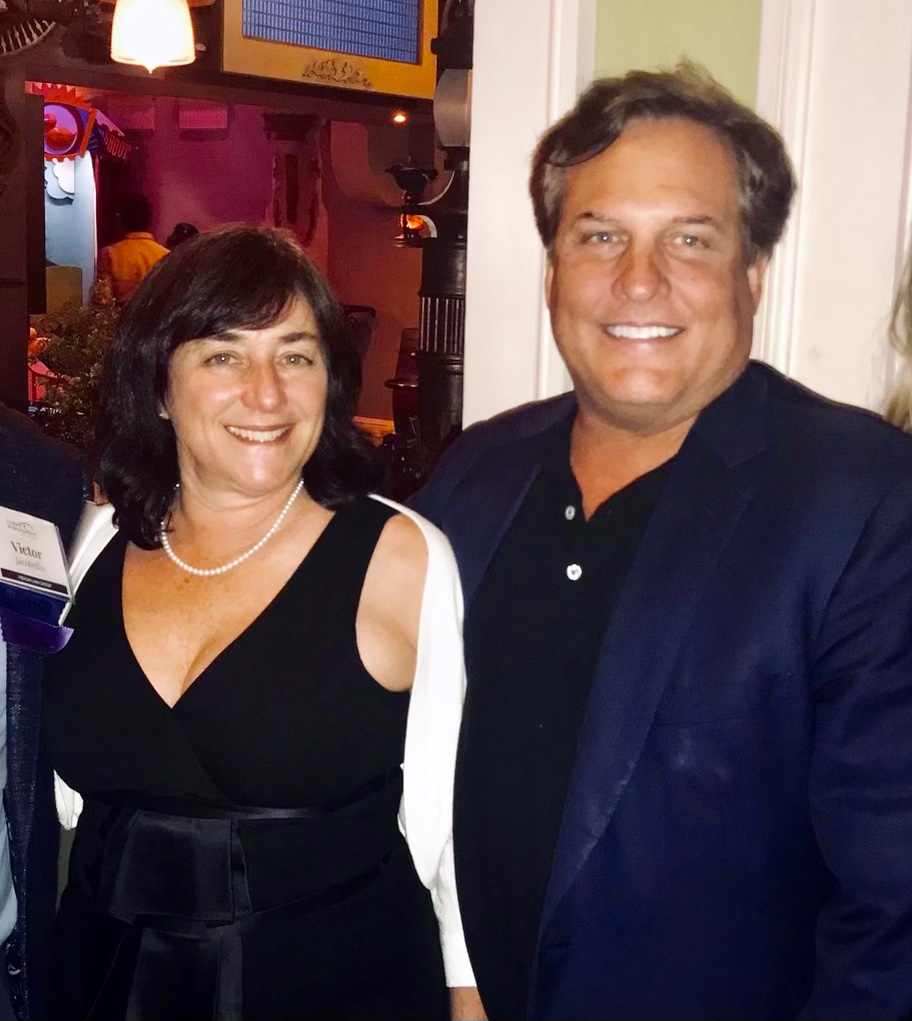Amy Bach is the Executive Director of United Policyholders. Last week, I had breakfast with her at the world-famous Sears Fine Food restaurant in San Francisco’s Union Square. We discussed a number of the projects United Policyholders is involved in, including the Covid Loss Recovery Initiative and Amicus Curiae Project. An “amicus curiae” brief is often called a “friend of the court” brief filed by a non-party to a lawsuit. This is part of what United Policyholders says about its ongoing Amicus Curiae Project:
As a non-party with a broad perspective and national direct contact with real-life insurance transactions, UP helps focus courts’ attention on the larger issues at stake. No meritorious case is too large or too small for the UP Amicus Project.
United Policyholders has filed over 300 amicus briefs to date in a wide range of important cases impacting policyholders’ rights and insurers’ duties. UP’s arguments have been adopted expressly and implicitly by the U.S. Supreme Court and many other courts. Numerous courts have specifically invited UP to brief certified questions as amicus curiae. When appropriate, UP is a co-amici with trade associations, government entities and other non-profits. Examples include AARP, Consumer Federation of America, the National Electrical Manufacturer’s Association, the American Institute of Architects, and the California Industry Association.
Our first brief was prepared in 1992 to educate a California Appellate Court on why property policies that purport to cover dwelling “replacement” should cover legally required (building code) upgrades. It was written by Amy Bach, who oversaw the UP Amicus Project as a volunteer for 13 years before becoming the organization’s full time Executive Director. She continues to manage the project today with help from a corps of experienced and dedicated policyholder advocate volunteers.
All of United Policyholders’ amicus curiae briefs are prepared and filed by experienced attorneys who specialize in insurance and/or appellate law. Volunteers and advisors to United Policyholders have prepared and filed pro bono 99% of the organization’s briefs.
The Covid lost income coverage disputes have been filed in cases throughout the country. One of the best briefs of this national legal controversy that I have read was recently written and filed by Reed Smith attorneys on behalf of United Policyholders.1 The contents of the brief make great points. I suggest readers of this blog take a few minutes to read this excellent legal work. The contents of the brief are:
The Insurance Industry has Known for Sixty Years That Courts Were Ruling That Its Standard-Form Language Covered Losses Like Those at Issue Here
A. Contrary to the Arguments of the Insurance Industry Parties, the Entire Purpose of Business Income Insurance Is To Cover a Policyholder’s Operations.
B. For More than Sixty Years, Policyholders, Courts, Insurance Policy Drafting Organizations and Insurance Companies Themselves Stated That Standard-Form Property Insurance Policies Covered Loss from Events Rendering Property Unfit for Its Intended Use
1. From 1957 through 2000, Courts Repeatedly Concluded that Policyholders Were Correct in Asserting that Events Rendering Property Unfit or Unsafe for Intended Use Caused Physical Loss or Damage
2. In the Early 2000s, the Insurance Industry Made Payments in Relation to Claims of Loss from SARS-CoV-1.
3. Insurance Industry Drafting Organizations Paid Close Attention to the Development of Case Law in this Area
4. As a Result of Their Close Review of the Common Law, and the Insurance Industry’s Payments for Loss from SARS-CoV-1, ISO and AAIS Drafted the Virus or Bacteria Exclusion.
5. From 2007 through 2018, Courts Repeatedly Concluded that Policyholders Were Correct in Asserting that Events Rendering Property Unfit or Unsafe for Intended Use Caused Physical Loss or Damage
6. Insurance Companies Confirmed the Majority Rule that Events Rendering Property Unfit for Its Intended Use Cause Physical Loss or Damage
7. The Failure of the Insurance Industry To Draft Specific Language To Achieve the End They Seek Here – Such as the Twenty Formulation of the Insurance Industry Parties in their Briefs to this Court – Must Have Consequence.
8. Since the SARS-CoV-2 Pandemic, Insurance Companies Have Drafted Additional Exclusions To Address Loss from the Infusion of Property with Virus
C. In Evaluating the “Core Purpose” and the “History” of Standard-Form Policy Language, the Key Point Is That the Insurance Industry Has Known, for Sixty Years, That Its Language Could Be Held To Cover Loss or Damage from Viruses, But Did Not Change the Language; Rather, It Only Drafted a Virus Exclusion
…
III. The Briefs of the Insurance Industry Parties Well Demonstrate the Insurance Industry Strategy – Cite the Same Questionable Sources Over and Over and Declare Victory.
IV. The Court Should Not Be Swayed by Self-Serving Warnings About Ruining the Insurance Industry—Insurers Make These Claims After Every Disaster, and They Are Always Overstated
I know that a lot of people are starting to think that only a few of these cases will ever result in a recovery. I would suggest that the chances of prevailing are much better with the type of logic and argument raised in this excellent brief. Everybody with a Covid case should consider incorporating these arguments into their case.
Thought For The Day
It ain’t over till it’s over.
—Yogi Berra
_______________________________
1 Neuro-Communication Services v. Cincinnati Ins. Co., No. 2021-0130, Brief of Amicus Curiae (Ohio 2021).





